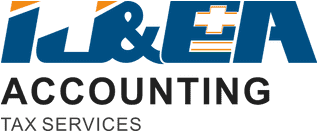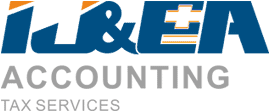Men and women often venture into the world of entrepreneurship with the notion that their product or design is what will attract customers. Many new business owners begin the premise of their start-up with logo designs, brand names, and packaging. All of which are undeniably potent to kicking a brand off the ground.
However, an entrepreneur’s goal isn’t to introduce a product or service – it’s to sustain an entire enterprise! This enterprise is where we talk about the arguably less ‘glamorous’ aspects of running a business – accounting and finance.
How Much Should A New Business Owner Know About Accounting?
Large-scale companies would often hire entire accounting firms to manage their finances. Unfortunately, small-scale businesses, particularly start-ups, do not enjoy the same benefits. However, whether you’re running a home-based business or managing an empire, every business owner needs to be well-versed in a few core concepts of accounting and finance.
Ask yourself this; is the amount I have in my business account enough to meet my expenses for this current month? If not, how do I reach a sustainable amount?
1. Creating A Pro Forma Financial Projection
There’s a difference between a business’ profits and its profit margins. Your business might as well be profiting by a narrow margin, and you’d be calling that a win. But, while it isn’t a loss, it’s not an adequate standard to measure your business’ growth.
A pro-forma financial sheet helps keep track of what will be spent from initial funding and the potential income generated from business. Entrepreneurs need to be able to create a financial sheet that’s readable and comprehensible. Following the initial stage and the numbers stack up, you can then choose appropriate tools for ongoing monitoring, ranging from Microsoft Excel to proper accounting software – depending upon the complexity of your business.
2. A Short Term Loss Can Lead To Long Term Gains
You’re in the business to make money, and it’s easy for many new business owners to think that profits are inherently linked to the sustainability of a business. While that’s one way of looking at it, it’s a narrow perspective.
For example, you could be spending more on marketing one month and suffer a short term loss for that one month alone, or you could focus on maintaining a profit to the extent that you neglect branding. This leads to long term losses and ultimately closing shop.
3. Create Separate Accounts
Never use your personal account as your business account. There most certainly has to be a fine line between the two that’s never to be crossed. Instead, always keep a separate bank account and credit card for your business. Not only does this help in avoiding any confusion or tax issues, but it’s easy to get caught up in cash flow.
You wouldn’t know where your business expenses end, and your personal ones begin. Sooner or later, you’d be paying company debt through your personal account.
4. Search Up On Taxes
All businesses are required by law to pay taxes. However, the sum they pay is variable between one business and the next. This depends on the profits, business structure and tax concessions. Initially, you might be exempted from paying any income tax provided that your business has no profits.
These are also other different taxes to be considered before you start selling your product or service. For example, PAYG Withholding Tax and GST.
5. Forecasting
You might think that it’s nearly impossible to look ahead into the future, but with a sustainable business account, accounting records and profit margins – you’ll be telling the future! Forecasting cash flow after every major decision involving your business. What will get you money? What’s it going to cost? And, is that cost worth it in your business’ long-term interest?
Accounting, by itself, doesn’t form the core competence of a business owner. However, through thorough considerations and planning in the early stage, it can save costly mistakes down the track.
For accounting services to kick start or to sustain your business, contact IJNEA today!












